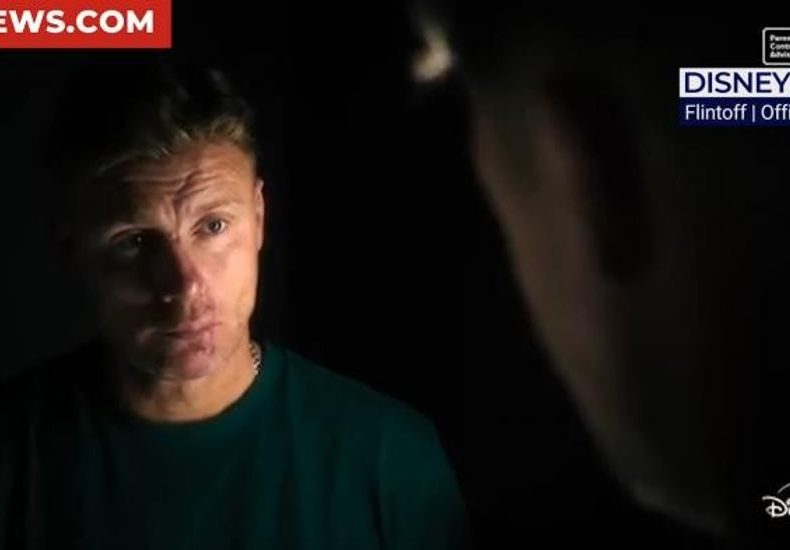
Jeremy Clarkson, 65, says BBC Top Gear return ‘needed more than ever’ as he makes stance clear on possible comeback
Former Top Gear presenter Jeremy Clarkson has said a car show is “needed more than ever” due to the rise of electric vehicles.
The 65-year-old told The Times it would be “very sad” if Top Gear never returned to screens following its indefinite suspension.
The BBC put the long-running motoring programme on hiatus after presenter Andrew ‘Freddie’ Flintoff was seriously injured in a crash whilst filming in December 2022.
Clarkson, who hosted Top Gear from 2002 to 2015, believes there is now a crucial need for expert guidance on the rapidly changing automotive landscape.
Flintoff, a former England cricketer, suffered significant facial injuries and broken ribs when his Morgan Super 3 three-wheeled sports car flipped over at Surrey’s Dunsfold Park Aerodrome.
The 47-year-old received £9 million in compensation following the accident.
LATEST DEVELOPMENTS:
The Grand Tour fans issue complaints over ‘money grab’ Richard Hammond and James May specialJeremy Clarkson, 65, rips into ‘hellish’ UK airport as he details James May travel chaosPaddy McGuinness, 51, breaks silence on ‘rift’ with former BBC Top Gear co-star Freddie Flintoff, 47
The BBC deemed it “inappropriate” to continue production, suspending the show for the “foreseeable future”.
Flintoff has recently opened up about the traumatic experience in a new Disney+ documentary, revealing he initially thought he “was dead” after the crash.
The incident marked a devastating blow for the programme, which had found a successful formula with Flintoff alongside co-presenters Paddy McGuinness and Chris Harris.
“There’s room for a car programme at the moment because cars are changing so fast and electrical cars are coming along and nobody really understands what’s a good one and what isn’t,” Clarkson explained.
He drew parallels to the 1950s when “motoring journalism was important” as car companies experimented with different technologies.
“Then by and large it was unnecessary for the last 40 years and now it’s necessary again,” he added.
The presenter admitted his own confusion about modern electric vehicles, saying: “When I look at a kilowatt per hour car, I have no idea what that means.”
Despite his advocacy for a new car programme, Clarkson made his stance on a comeback clear as he firmly ruled himself out of any potential Top Gear revival.
“I just don’t understand or like electrical cars, so I wouldn’t be interested in doing it,” he told The Times.
The presenter had previously explained his departure from motoring shows, stating: “After 36 years of talking about cars on television, I’m packing it in, because I’m too old and fat to get into the cars that I like and not interested in driving those I don’t.”
The Grand Tour, which Clarkson fronted with Hammond and May after leaving the BBC, aired its final episode in September 2024.
However, it will continue in a series of nostalgic specials in which the trio look back at highlights from their time on the show.
Meanwhile, in his Disney+ documentary Flintoff, the former cricketer revealed the profound impact the crash had on his mental health.
“This sounds awful: part of me wishes I had been killed. Part of me thinks, ‘I wish I had died,'” he admitted.
Flintoff also criticised the television industry, suggesting he was treated as “a piece of meat” by programme makers.
“Everyone always wants more. Everyone wants that thing that no one has seen before — that bigger stunt,” he said.
The sportsman disclosed he was “unable to leave home for eight months” following the accident.
He has maintained little contact with his former co-presenters, fearing being “triggered” by memories of the crash.
The BBC launched an investigation into the circumstances of Flintoff’s accident, which included recommendations to improve safety approaches for any future Top Gear production.
These included “increased clarity on roles and responsibilities and better communication between teams”.
Top Gear, which first aired in 1977, enjoyed its most successful era from 2002 with Clarkson, Hammond and May at the helm.
The show became the most watched programme on BBC Two during this period.